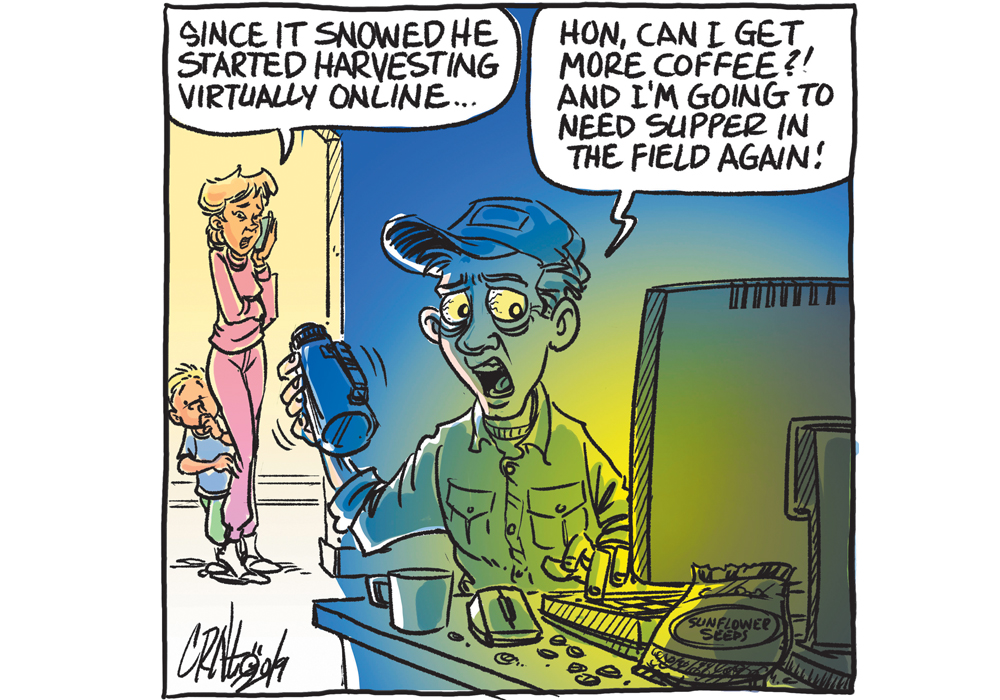In recent days, the warmer weather returned, the snow left the fields and the combines were back at work.
It should have been a good time for farmers, drinking up the fields with their machines, but instead it will be another intensely stressful harvest.
And if forecasts are correct, they’ll be facing snow again shortly.
We can only imagine the sinking feeling many producers must have felt late last month when they looked out the window in the morning and saw their fields covered in snow. It was money gone, in a time when income will be tenuous because of a wet autumn and a market climate tilted by trade disputes.
Read Also

High prices see cow-calf producers rushing to incorporate
Farm accountants are reporting a steady stream of cow-calf producers rushing to get their operations incorporated ahead of selling their calves this fall.
The piling on of a difficult harvest on top of many other pressures is bound to affect mental health. The concern is real. During the farm crisis in the United States in the 1980s, the suicide rate among farmers was twice that of other white males 20 years old and older, according to the U.S. National Farm Centre. No such statistics are kept in Canada, but we know the stressors are similar.
In the spring, the Saskatchewan Ministry of Agriculture reported that calls to its farm stress line had more than doubled for the last fiscal year. Main issues were debt, cash flow, bankruptcy concerns, succession planning, and decisions around exiting farming.
Other reported issues focused on crop-related concerns — knowing what to plant (understandable given the marketing concerns with canola) — and weak commodity prices.
That stress is intensified by the idea that farming is a way of life, and it’s not just a family business that’s under pressure.
Many producers in rural areas don’t have access to mental health services. The expansion of internet broadband to cover all rural areas is planned to take place over the next 10 years. That’s a crucial development in the effort to provide mental health services in the home, where farmers have indicated they feel more comfortable.
But it’s important to address the here and now.
Aside from the uncontrollables — markets, weather, crop losses, disease — living in isolation in rural areas is also a perennial issue.
Mental health experts urge farmers to focus on what they can do something about and not to fret about things not under their control.
Some people will see stress as just being angry at a certain situation, but if one pauses to think, there may be more to that anger. Stress can occur suddenly or it can build rapidly.
Take some time for reflection this fall, whether you’re having a conversation with someone you trust or whether you’re alone in the combine (so long as the GPS guidance is on). Do a bit of a mind checklist.
A “tool kit” published by the Canadian Agricultural Safety Association lists 60 causes of stress for producers.
Good mental health is not the absence of stress. It’s the ability to enjoy life. The Ontario Ministry of Agriculture calls it “a positive sense of well-being, or the capacity to enjoy life and deal with the challenges we face.”
There are good coping tools, starting with the help lines listed on the Do More Ag website.
Producers should make a deliberate effort to take action on things they can control, look for the light, see a challenge instead of a crisis, give themselves credit and be proactive rather than reactive.
Don’t ignore the good things in life: exercise, hobbies, diversions and relaxation.
And take time to allow yourself to laugh. Exercise those 17 muscles in your face. Laughter releases endorphins that help to relieve stress.
Things may seem hard to control, but how you deal with stress can be controlled.
Karen Briere, Bruce Dyck, Barb Glen, Brian MacLeod and Michael Raine collaborate in the writing of Western Producer editorials.















